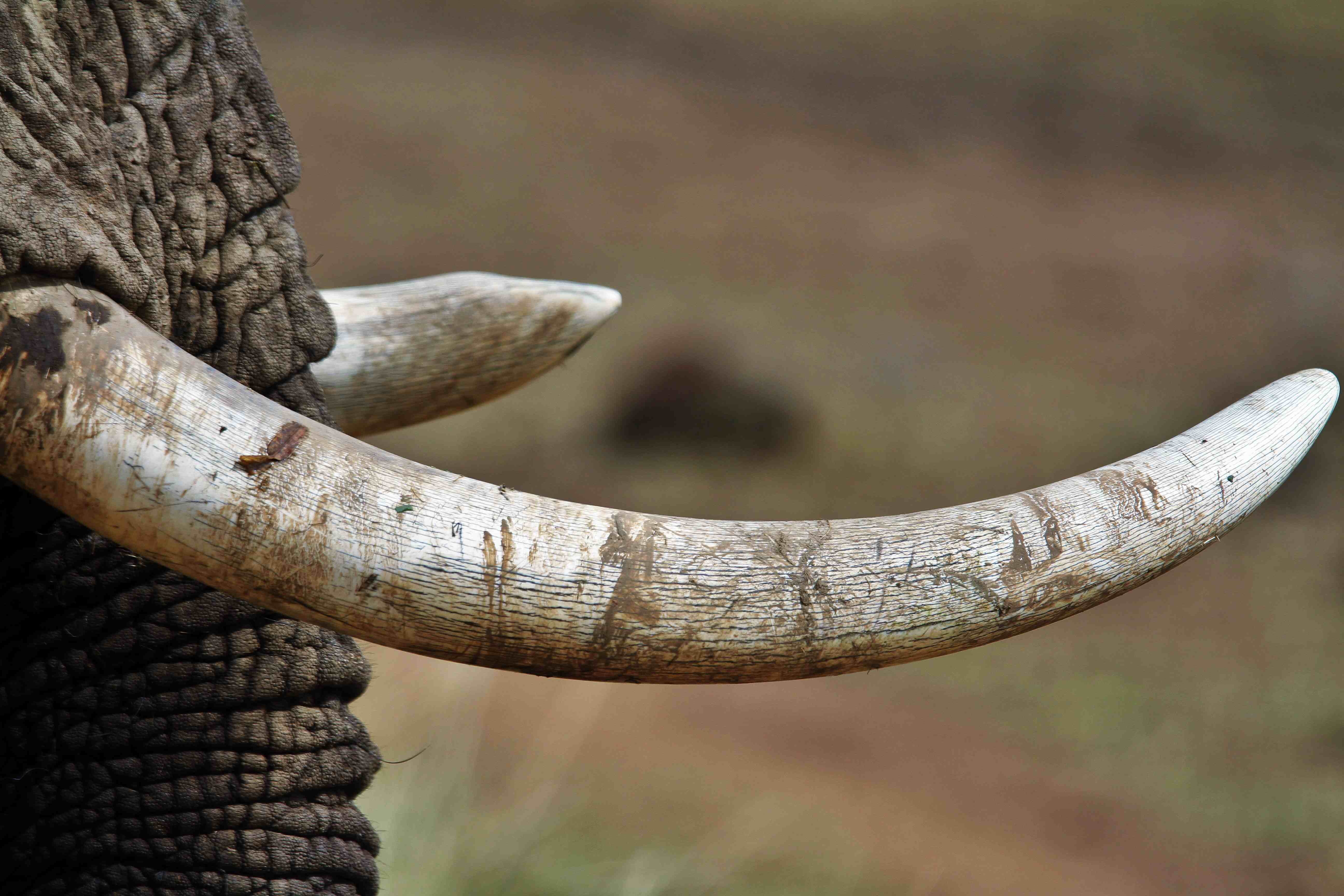Just a few months after publicly burning pangolin scales and other illegal wildlife product stockpiles, Nigeria has publicly destroyed millions of dollars in seized ivory as the country ramps up a war on wildlife crime.

Bonface Orucho, bird story agency
Nigeria is taking an increasingly public stand against the illegal wildlife trade. A recent, widely-broadcast event, saw the country crush some 2.5 tonnes (2436.15 kg) of elephant tusks.
The ivory, valued at over 9.9 billion naira (US $11.2 million), was crushed in a ceremony held in Abuja on January 9, hosted by the National Environmental Standards and Regulations Enforcement Agency (NESREA) in collaboration with the Elephant Protection Initiative Foundation (EPIF).
In his remarks at the ceremony, Iziaq Adekunle Salako, the Minister of State for the Environment, indicated that the ceremony was a "demonstration that it is just the beginning of government representation to curb illicit activities”.
The move follows Nigeria's public burning of nearly 4 tons of pangolin scales and an additional 110 kilograms of dried skins from various protected species in October 2023.
“The option of outright public destruction is aimed at showing the entire world that Nigeria is zero-tolerant to illegal wildlife trade,” Salako explained in his remarks.
Crushing the ivory rather than incinerating it, as seen most recently in Kenya in 2023, is an initiative of NESREA to pursue more environmentally friendly methods of publicly disposing of illegal wildlife product stockpiles.
The decline in Africa's elephant population is of growing concern to African governments and environmentalists, with the most recent African Elephant Status Report estimating around 415,000 elephants remaining in Africa compared to over 1.3 million in 1979. Nigeria currently hosts only around 400 elephants – less than a third of the 1979 number.
Nigeria's efforts to crack down on illegal wildlife products could have a major impact on the illicit trade in Africa. According to the UN Office on Drugs and Crime, the West African country is a major trafficking hub for illegal wildlife products from Africa to Asian markets.
According to Peter Knights, founder of the Wild Africa Fund, Nigeria is “stepping up its game in fighting illegal wildlife trade.”
“This is evident with more seizures and prosecutions and greater public awareness. The next logical step is to update its outdated legislation. This would greatly help to end its role as a major entrepot for the illegal wildlife trade,” Knights said.
In May 2023, two individuals were given a four-year prison sentence for conspiring to possess 839.4 kilograms of pangolin scales and 145 kg of elephant tusks illegally. A clearing agent was also, in June 2023, sentenced to a six-month prison term for illegally possessing a container full of pangolin scales, elephant ivory, tusks, and bones.
In January 2021, the Nigeria Customs Service uncovered a shipment containing 2,772 elephant tusks representing some 1,386 slaughtered elephants – or, more than three times the number of Nigeria's remaining herd – at the Apapa Port.
Legislative efforts like the National Strategy to Combat Wildlife and Forest Crime, the ongoing development of a National Elephant Action Plan (NEAP) and increasingly aggressive action by the Wildlife Law Enforcement Task Force, suggest that Nigeria is serious about efforts to save its wildlife.
The National Elephant Action Plan (NEAP) is being developed through a collaborative approach between NESREA, the Wildlife Conservation Society and the Elephant Protection Initiative Foundation. The plan will allow national resources to be directed to elephant protection.
Public destruction of wildlife products is set to continue once some of the large seizures of pangolin scales and ivory held by the Nigeria Customs Service as evidence for prosecution are handed over to NESREA for public destruction.
African nations appear to becoming increasingly serious about sending the public signals that they are cracking down on illegal wildlife trade.
In November 2023, Kenya set ablaze 105 metric tons of seized ivory at Nairobi National Park. The country's first public burning of tusks occurred in 1989 while the largest-ever ivory bonfire – containing 120 tons of ivory representing thousands of elephants – was set ablaze in 2016.
The public destruction of illegally traded wildlife products has also been witnessed recently in Gabon, Tanzania, and South Africa.
The illegal wildlife trade imposes a significant economic burden on African countries. Globally, it ranks as the fourth-largest source of funds for international crime, generating between US$7 and US$23 billion annually, according to the Conservation Strategy Fund. The proceeds are increasingly used to fund terror activities on the continent, destabilising governments and undermining development.
bird story agency





